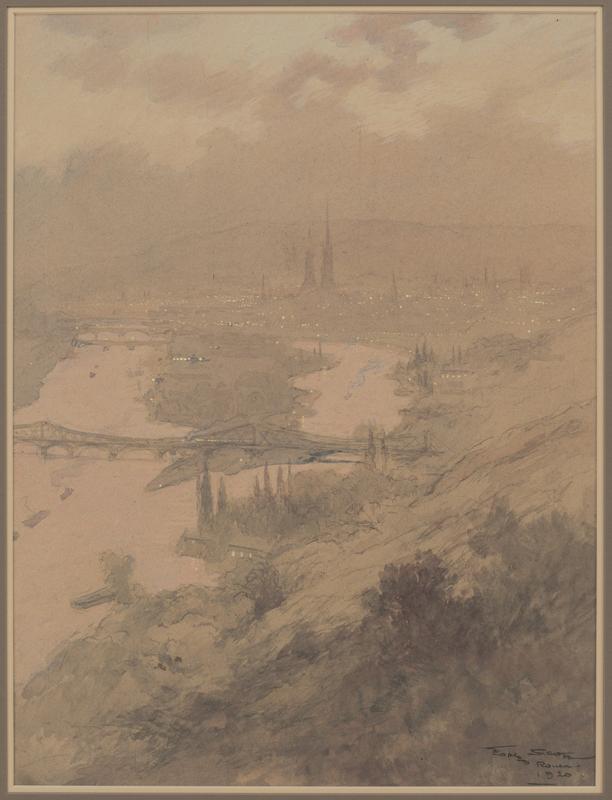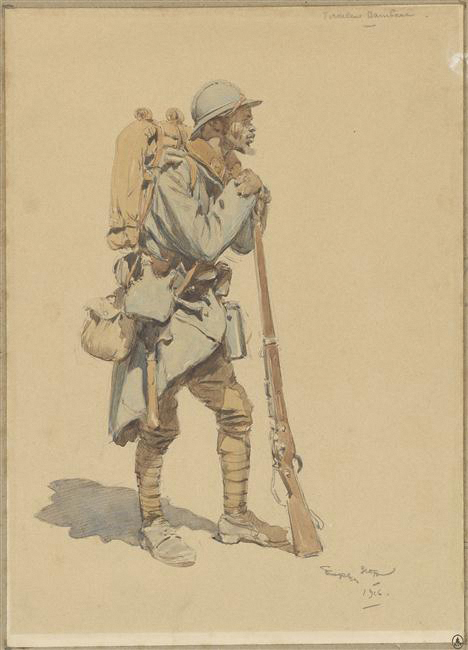
172. Georges Bertin Scott, View of Rouen
| Artist | Georges Bertin Scott, French, Paris 1873–Paris 1942 |
| Title, Date | View of Rouen, 1920 |
| Medium | Wash on brown paper |
| Dimensions | 24 × 18 1/2 in. (61 × 47 cm) |
| Inscriptions + Marks | Lower right: Georges Scott / Rouen / 1920 |
| Provenance | [Galerie Laura Pecheur, Paris, until 2008; to Weisberg]; Yvonne and Gabriel Weisberg, Minneapolis |
| Exhibition History | "Reflections on Reality: Drawings and Paintings from the Weisberg Collection," Mia, 2022–23 |
| Credit Line | Promised gift of Gabriel P. and Yvonne M.L. Weisberg, Minneapolis |
This gentle drawing of Rouen, in France, is very unlike the images usually associated with Georges Scott, who is known for his depictions of combat. He completed this drawing between wars; he was present at the Balkan Wars (1912–13), World War I (1914–18), and the early stages of World War II (starting in 1939).1 His drawings and news dispatches often appeared in L’Illustration, a widely circulated periodical. Highly respected, Scott became a member of the Salon des Artistes Français in 1897. He was named a knight of the Legion of Honor in 1912 and promoted to an officer in 1928.
Scott trained with the lauded military artist Édouard Detaille (1848–1912). When not doing war illustrations (fig. 1), he pursued diverse subject matter, from flowers to bullfights to landscapes. He traveled throughout France and visited Spain, Holland, and Morocco, making art along the way. He did watercolors of Breton women at work. He covered the 1928 Olympics in Amsterdam. He made calendar art and book illustrations. He created images of the heroic knight Saint George and the allegory of France as a woman raising her sword and tricolor flag.

This wash drawing of Rouen in half-light was made from a vantage point on the east side of the city. The River Seine is in full view, with Rouen Cathedral visible just north of the riverbank. The island in the foreground is Île Lacroix. To get this view, Scott had to climb to an elevated spot, likely the place where the city erected a monument to Joan of Arc, dedicated in 1892. It would have been fitting if Scott had stood there in 1920, when this drawing was made, because that is the year Joan of Arc, France’s woman warrior, was canonized.
GPW
Notes
Scott died in 1942, although his death date is also given as January 1943. We do not know how long before his death he left the front lines. ↩︎